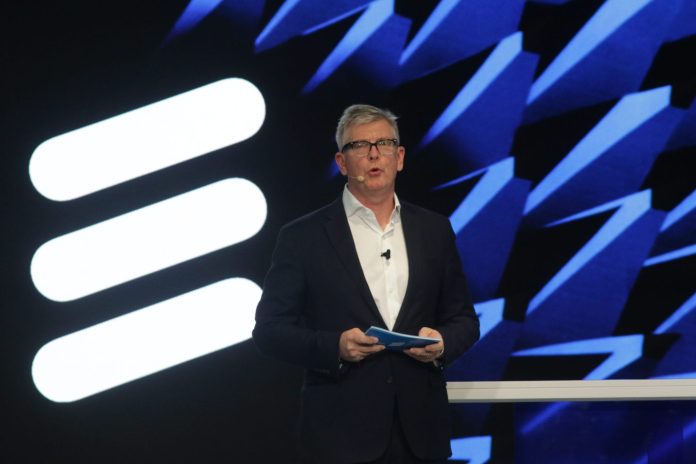Ericsson has restructured its business and management to reflect its new growth strategy, which hinges on private 5G and cloud services, and has set a group target of 15-18 percent EBITA margin “within two-to-three years”. The Swedish vendor said its strategy is to be a “leader” in mobile infrastructure and to “establish” an enterprise business. The new structure takes effect from the start of June, with a new division for ‘cloud software and services’ and another for ‘enterprise wireless solutions’. The firm’s core ‘networks’ business remains unchanged.
The new enterprise division, of most interest to Enterprise IoT Insights, will officially merge its private (‘dedicated’) local-area network (LAN) division and its Cradlepoint business, acquired for $1.1 billion in late 2020. US-based Cradlepoint has traditionally focused on LTE and 5G wide-area networking (WAN) for the emergency services sector, as well as providing some private 5G LAN for the enterprise, retail, logistics, and manufacturing markets.
The new division will take “full accountability” for developing private 5G solutions for enterprises. In a change in tack, Ericsson said the new private networks division will “create a dedicated go-to-market organization for enterprise customers, including leveraging established relationship(s) with service providers”. The shift appears slight but significant for a firm that has put traditional public carriers first in all of its PR messaging on private networks.
It said the rejig is timed, also, to coincide with “strong growth” for Cradlepoint – “as 5G coverage increases on the US C-band” – and with the launch of its own private 5G (EP5G) proposition “in several leading markets”.
Ericsson has appointed Cradlepoint chief George Mulhern to head the unit, as senior vice president and head of enterprise wireless solutions; he will also join the executive team. Åsa Tamsons, a key figure in Ericsson’s private 5G story to date, will continue in her role as senior vice president and head of technologies and new businesses, which remains a separate business unit (“area”), focused on new solutions for both operators and enterprises.
Meanwhile, the newly devised business unit for cloud software and services is to expand focus from its traditional remit of network provision to big mobile operators (‘networks’) to cover cloud-based network management and automation. The division will combine Ericsson’s old digital services and managed services businesses. As its name suggests, it will be geared to “capitalise on the convergence of cloud, software, and services”, said Ericsson.
It will also develop its managed services offer, which centres on its “AI-driven” operation engine product, offering proactive and predictive software-based network management. Per Narvinger, currently head of ‘product area networks within business area networks’, is to lead the unit, as senior vice president and head of cloud software and services; he, too, will join the executive team.
A statement said: “Ericsson will be able to leverage investments in R&D, increase cloud native expertise, and build its combined offerings for automation and AI for service delivery. This will allow Ericsson to build on the success in recent years which includes strong development in the cloud native 5G core portfolio where 16 out of the 20 largest operators globally have chosen Ericsson.”
Jan Karlsson, head of digital services, is to leave the executive team to “instead drive” Ericsson’s ‘global network platform’. A new group function, called ‘global operations’, is to be introduced, covering Internal sourcing, IT, digital transformation, real estate, plus parts of the ‘people and finance’ functions. It will be headed by Moti Gyamlani. Peter Laurin and Arun Bansal, head of managed services and head of Europe and Latin America, will leave, altogether.
Börje Ekholm, chief executive of Ericsson, said: “We are taking important steps in our journey to execute on our strategy. The new… enterprise wireless [division] will provide the focus and conditions… to thrive in the enterprise market and secure the next wave of success… [The new cloud software and services division] provide(s) solutions … [to] help customers automate… complex networks for cost advantages and speed to market.”

